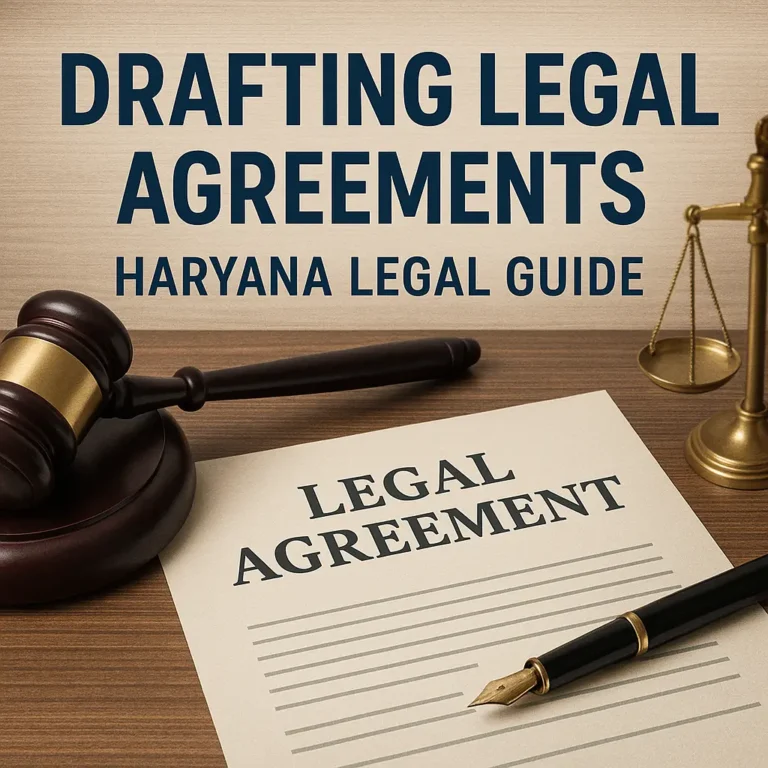In this article we have explained about contracts. As contracts are the backbone of legal and business transactions in India, ensuring that parties involved in an agreement adhere to their commitments. Understanding the essential elements and common mistakes can save individuals and businesses from potential disputes and financial losses. This article simplifies these concepts, aligning with Indian law.
Contracts: Understanding the Basics and Avoiding Mistakes in Indian Law
Offer and Acceptance
At the heart of every contract is the principle of offer and acceptance. An offer is a proposal made by one party to another, intending to create a legal relationship upon acceptance. Acceptance, in turn, is the agreement to the terms of the offer in the manner prescribed. This mutual consent sets the foundation for a binding contract.
Lawful Consideration and Object
Consideration refers to something of value that is exchanged between the parties. According to Indian Contract Act, 1872, the consideration must be lawful. Similarly, the object of the contract must be legal and not prohibited by law. This ensures that the contract promotes a legitimate purpose that is not harmful to society.
Competent Parties
The parties involved in a contract must be competent, meaning they are of legal age, sound mind, and not disqualified from contracting by any law to which they are subject. This ensures that those entering into agreements fully understand their implications and are legally recognized to do so.
Free Consent
Consent is considered free when it is not caused by coercion, undue influence, fraud, misrepresentation, or mistake. A contract entered into under any of these conditions may be voidable at the option of the party whose consent was compromised.
Legal Formalities
Some contracts in India need to be in writing, registered, or meet other specific legal formalities to be enforceable. While many agreements are valid through oral agreements, certain types of contracts, like those related to property, require adherence to specific formalities.
Common Mistakes to Avoid in Contractual Agreements
Vague or Incomplete Terms
One of the most common pitfalls is not clearly defining the terms and conditions of the agreement. Ambiguities can lead to disputes and legal challenges. It’s crucial to detail all aspects of the contract, including payment terms, delivery timelines, and termination clauses.
Ignoring the Need for a Written Contract
While oral contracts are recognized, the absence of a written agreement can make it challenging to prove the terms in case of a disagreement. A written contract serves as a tangible record of the parties’ understanding and agreements.
H3: Overlooking the Importance of Legal Advice
Entering into a contract without understanding its legal implications can be risky. Seeking legal advice helps in identifying potential issues, ensuring the contract’s terms are fair, and that it complies with relevant laws.
Failing to Plan for Contingencies
Contracts should account for unexpected events or changes in circumstances. Including clauses for dispute resolution, force majeure (unforeseeable circumstances that prevent someone from fulfilling a contract), and termination can provide a roadmap for handling unforeseen challenges.
Final Thoughts
Contracts are vital for securing business transactions and relationships. Understanding the essential elements and avoiding common mistakes can lead to successful agreements that protect the interests of all parties involved. Always approach contractual agreements with caution, clarity, and the guidance of legal expertise to navigate the complexities of Indian law.
By embracing these principles, individuals and businesses can foster secure, transparent, and mutually beneficial relationships, ensuring their dealings are not only legally sound but also conducive to long-term success.
The Essence of Contractual Wisdom
In essence, the journey through creating and executing contracts in accordance with Indian law emphasizes the importance of mutual agreement, lawful objectives, competent parties, free consent, and adherence to legal formalities. Avoiding common mistakes by ensuring clarity, seeking legal advice, and preparing for contingencies further solidifies the foundation of a strong and enforceable contract. With this understanding, navigating the intricacies of contracts becomes a manageable and confident endeavor.
FAQs: Understanding the role of consideration in contract law
1. What is a contract?
A contract is a legal agreement between two or more parties to do or not do something in exchange for something of value.
2. Are verbal agreements legally binding in India?
Yes, verbal agreements are legally binding in India, provided they meet all the essential elements of a valid contract, except where the law specifically requires a written form.
3. What makes a contract legally valid?
A contract becomes legally valid when it has offer and acceptance, lawful consideration, competent parties, free consent, and legal purpose. Some contracts may also need to adhere to specific formalities.
4. What is “consideration” in a contract?
Consideration is something of value (money, goods, services, etc.) that is exchanged between the parties in a contract.
5. Can a minor enter into a contract?
In India, a contract with a minor (someone under 18 years) is generally void from the beginning, as minors are considered not competent to contract.
6. What is free consent?
Free consent means agreeing to the contract terms without being subjected to coercion, undue influence, fraud, misrepresentation, or mistake.
7. What are the consequences of not having free consent in a contract?
A contract entered without free consent can be considered voidable, meaning the party whose consent was not free may choose to nullify the contract.
8. How important is it to have a written contract?
Having a written contract is crucial as it provides a clear record of the agreement and terms, making it easier to enforce and resolve disputes.
9. What happens if a contract’s terms are vague or incomplete?
Vague or incomplete terms can lead to misunderstandings, disputes, and challenges in enforcing the contract. It’s essential to clearly define all terms and conditions.
10. Is legal advice necessary before signing a contract?
While not mandatory, seeking legal advice is highly recommended to understand the contract’s implications, ensure fairness, and comply with applicable laws.
11. What is a void contract?
A void contract is an agreement that is not legally enforceable from the beginning due to factors like illegality or impossibility.
12. Can a contract be modified after signing?
Yes, a contract can be modified if all parties agree to the changes and the modifications are made in accordance with the law.
13. What is a breach of contract?
A breach of contract occurs when one party fails to fulfill their obligations as outlined in the contract.
14. What remedies are available for a breach of contract?
Remedies can include damages (compensation), specific performance (carrying out the contract terms), or cancellation and restitution.
15. Can a contract include a penalty for breach?
Yes, contracts can include penalty clauses for breaches, but the enforceability of such clauses may be subject to judicial scrutiny for reasonableness.
16. What is an “implied” contract?
An implied contract is one where the terms are not explicitly stated but inferred from the actions, conduct, or situation of the parties.
17. Are electronic contracts valid in India?
Yes, electronic contracts are valid and enforceable in India, provided they meet all the requirements of a valid contract.
18. What is a unilateral contract?
A unilateral contract is an agreement where only one party makes a promise in exchange for an act by the other party.
19. Can I withdraw an offer before it’s accepted?
Yes, an offer can be withdrawn anytime before it is accepted, but the withdrawal must be communicated to the offeree.
20. What is a “counteroffer”?
A counteroffer is a response to an offer where the original terms are rejected, and new terms are proposed.
21. What is specific performance?
Specific performance is a legal remedy where the court orders the party who breached the contract to perform their obligations as per the contract.
22. Can a contract be terminated by mutual agreement?
Yes, parties can mutually agree to terminate a contract, and the terms of termination should ideally be documented.
23. What does “force majeure” mean in contracts?
Force majeure refers to unforeseeable circumstances that prevent a party from fulfilling their contract obligations, such as natural disasters.
24. Are all mistakes in contracts rectifiable?
Not all mistakes can lead to rectification. Generally, only mutual mistakes regarding the contract’s fundamental facts can be rectified.
25. What are “standard form” contracts?
Standard form contracts are pre-prepared contracts where one party sets the terms, and the other party has little or no ability to negotiate.
26. How does undue influence affect a contract?
Undue influence occurs when one party unfairly influences another, which can make the contract voidable by the influenced party.
27. What is the importance of a “cooling-off” period in contracts?
A cooling-off period allows parties to reconsider and possibly withdraw from the contract without penalties, typically seen in consumer contracts.
28. Can I enforce a verbal agreement?
Enforcing a verbal agreement can be challenging due to the difficulty in proving its terms, but it is not impossible with evidence of the agreement and its terms.
29. What is “consideration” in a contract?
Consideration is the benefit or value that each party agrees to give or receive under the contract. It must be lawful and real for the contract to be valid.
30. What does “capacity to contract” mean?
Capacity to contract refers to the legal ability of a party to enter into a contract, meaning they must be of legal age, sound mind, and not disqualified by any law.
















